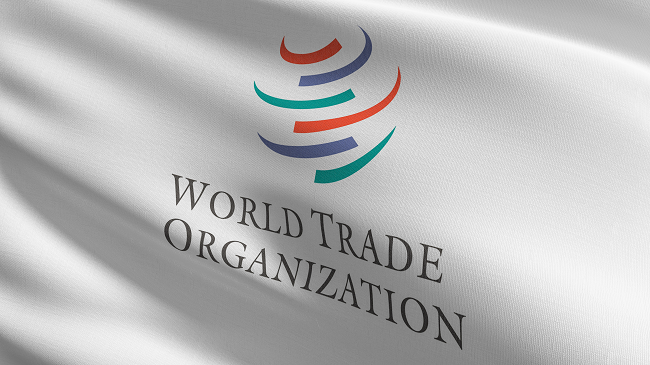
A dispute between one of the world’s smallest countries, Lithuania, and one of the most powerful, China, could have ramifications for global trade.
China has ramped up action against Lithuania after the Baltic state allowed Taiwan to open an embassy in Vilnius last November.
China claims Taiwan as part of its territory and takes a strong line against countries who recognise it as an independent country.
Since the opening of the Vilnius embassy, Lithuania has faced increasing disruption of its trade with China.
Trade block
According to Reuters, China’s customs statistics showed a 91% drop in trade from Lithuania to China in December as compared to the same month in 2020, with the most affected sectors being pharmaceuticals, lasers, electronics and food.
Yesterday, China suspended imports of beef from Lithuania, Reuters has also reported.
The EU has launched a case against China at the WTO following “repeated failed attempts to resolve the issue bilaterally”.
EU takes up case
Evidence of Chinese restrictions has been built by the European Commission – including a refusal to clear Lithuanian goods through customs, rejection of import applications from Lithuania, and pressuring EU companies to remove Lithuanian companies from their supply chains when exporting to China.
It says the actions appear to be discriminatory and illegal under WTO rules, harming exporters both in Lithuania and elsewhere in the EU.
No alternative
Executive vice-president and commissioner for trade, Valdis Dombrovskis, said: “Launching a WTO case is not a step we take lightly. However, after repeated failed attempts to resolve the issue bilaterally, we see no other way forward than to request WTO dispute settlement consultations with China.”
China has warned the EU not to get involved in what it says is pure business preferences against Lithuanian supplies, reports Politico.
UK backing
However, the EU has been backed in its WTO case by Britain, the US and Australia.
“We will request to join the EU’s WTO consultation into these measures as a third party to ensure we combat economic coercion in trade together,” international trade minister, Anne-Marie Trevelyan said in a tweet.
WTO effectiveness
Under WTO rules, the EU and China have 60 days to consult with each other to reach a settlement, reports Global Trade Review (GTR).
If no settlement is reached, the EU can request the establishment of a panel of judges to hear the dispute.
Block
However, the WTO’s highest dispute court – the appellate body – does not have enough judges to hear cases due to the US blocking of new appointments in recent years.
The WTO has set up a temporary body – the Multi-Party Interim Appeal Arbitration Arrangement (MPIA) – to hear disputes as long as parties agree to be bound by its decisions.
Challenge
A Lithuanian official told GTR that the dispute poses a challenge to the WTO’s ability to protect rules-based trade.
Vytautė Šmaižytė-Kuliešienė, spokesperson for the country’s ministry of foreign affairs, said that the issue is “about the integrity of trade rules that need to be protected by all like-minded trading actors”.
“It is a test to the WTO and its ability to act as guardian of the multilateral trading system,” she said.
Economic weapon
Lithuania’s foreign minister told the Telegraph that China is using a trade war with Lithuania as a “weapon of economic destruction” in a test of democratic values.
“If it works, it basically can be used in any other country and by any other non-democratic country that has issues with another country that it doesn’t like,” said Gabriel Landsbergis.
Taiwan response
Taiwan, which only has 14 formal diplomatic allies, has announced a $1bn credit programme to help fund joint projects between Lithuanian and Taiwanese companies in the semiconductor industry as well as biotechnologies, satellites, finance and scientific research.
Taiwan’s public have also been buying Lithuanian products such as chocolate and beer, and the state-run Taiwan Tobacco and Liquor Corp (TTL) purchased 20,000 bottles of Lithuanian rum blocked from China.



